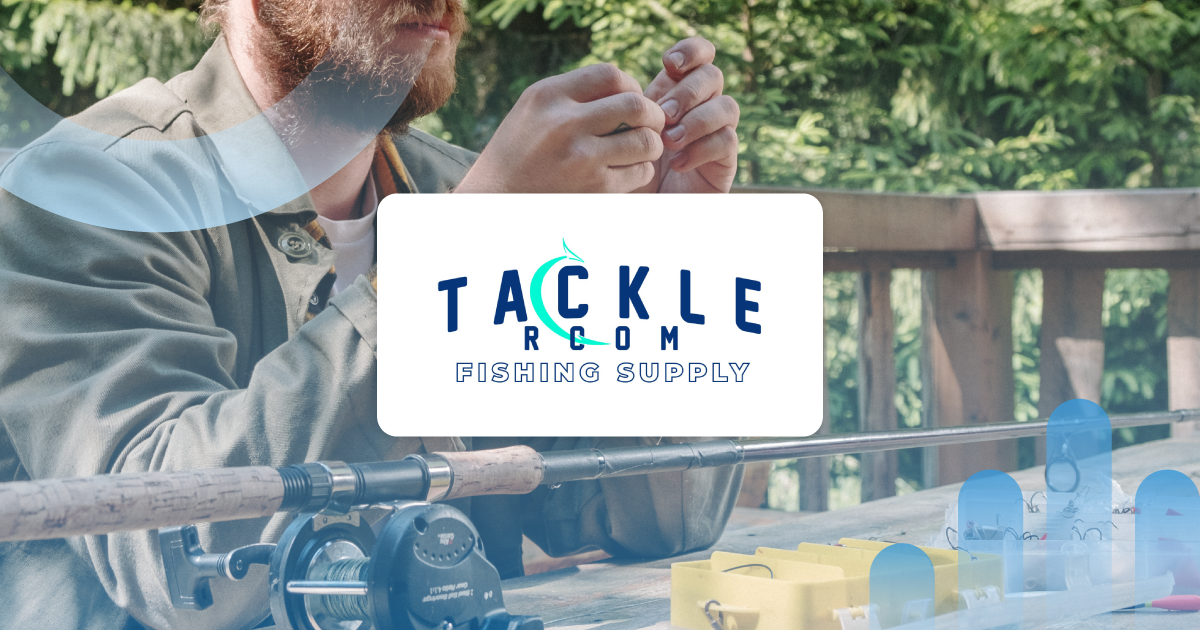Bryan Byrd has worked in the outdoor industry for almost two decades. When he’s not working, he enjoys offshore fishing and lazy Sunday surf fishing.
He and his business partner, Matt Zook, met several years ago. At the time, Matt owned a bricks-and-mortar tackle store that enjoyed many years of success in the local community. Bryan had recently exited a career in the bike industry and started a fishing tackle brand. Soon after they met, Matt began to sell some of Bryan’s fishing products in his store, and the two became close friends.
Over the course of several beer-and-hot-wings-lunches together, they started kicking around the idea of finding a niche retail market. Specifically, they spoke of setting up an online business selling saltwater fishing tackle. Dreams soon turned into reality and, before long, the pair had established a purely online retail outlet.
After cultivating a mix of local and international fishing enthusiasts, business was booming, as Bryan explains:
“During those early days, we soon realized that we’d grossly overestimated the demand for this niche product offering, and our business rapidly took off.”
Warning bells
As the pair worked to expand their website, the issue of data backup became front of mind. They found that between 70 and 80 images had mysteriously vanished from their website. Looking back, Bryan surmises that this was a result of user error. Nevertheless, the experience planted the seed in his mind of possibly investing in a backup solution for their ecommerce instance.
As is the case with most ecommerce organizations, The Tackle Shop’s website is the company’s most critical asset, and Bryan and Matt invest a great deal of time and effort in optimizing all aspects of it.
“Experience has taught us that our customers value a simple, clear UX and an intuitive, easy-to-navigate web interface,” explains Bryan. “We don’t invest in too many flashy or trendy apps. But the performance of the store is paramount. That’s because if our product pages aren’t loading correctly – which can happen in our busy Spring and Summer seasons – we notice an immediate dip in our conversion rate.”
A few months ago, Bryan and Matt engaged consultants to help make minor updates to their site, which runs on the Shopify platform.
Bryan explains what happened next:
“Unfortunately, the relationship with one of the freelancers took a bad turn and was subsequently severed. But I began thinking, “This person had full access to our store for a period of time. Imagine if they had attempted sabotage in the form of deleting our data or images or interfering with our site some other way. What would we have done then? It could have been bad! So, that’s when we decided to get Rewind’s backup.”
What went (briefly) wrong next
A few months later, Bryan engaged another freelancer – a developer – to do some basic testing. Somehow, they made changes in the backend that caused the company’s product pages to glitch like crazy – all in the middle of summer, which, as we mentioned before, is peak fishing season and when traffic volumes are generally at their highest.
One evening, Bryan and Matt became aware of the problem when they looked at their conversion rate and realized they’d hardly sold anything that day.
They immediately reverted the affected product pages using Rewind’s backup app.
Rewind saves the day
“It totally saved things,” recalls Bryan. “Everything went back to normal. We also immediately contacted the developer to fix his error. He happened to be overseas, which added a bit of stress to the situation as there was a time zone issue. That’s never helpful, of course, in an ecommerce world where every hour counts. But ultimately, it was the Rewind app that totally saved us that day.”
Bryan’s experience isn’t uncommon and is becoming more commonplace in a labor market where there’s currently an unprecedented shortage of key skills required by such businesses. Ecommerce companies also need to be wary of candidates that might embellish their qualifications and experience.
Irrespective of who they hire, there’s an important lesson that ecommerce companies should learn from Bryan’s tale. While Shopify maintains disaster recovery backups of its entire platform that enable the recovery of the entire Shopify site in the case of a disaster targeting the platform’s main data centers, this backup isn’t designed to provide customers with account-level backups. This means you may risk losing your important Shopify data if you don’t back it up elsewhere.
With Rewind, you can restore and back up your entire ecommerce store with automatic backups and on-demand restores. Rewind’s secure data backups will help you reduce downtime and get your store back up and running as fast as possible in the case of data loss.
All of Rewind’s solutions can be installed in minutes and canceled at any time. Plus, all Rewind customers have access to our 5-star customer support team who can assist with any restore – 7 days a week.



